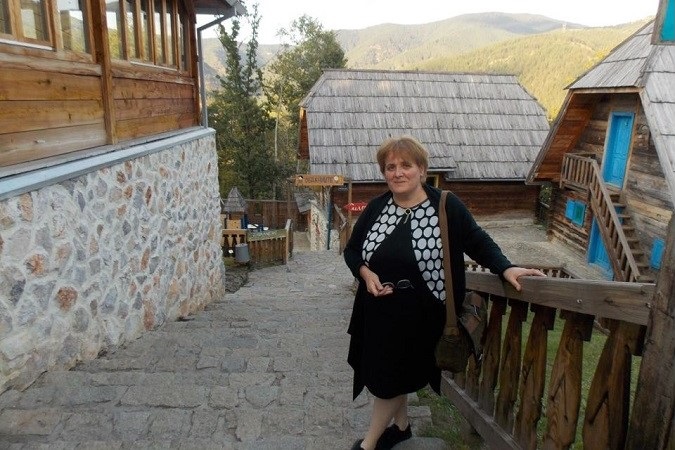In the words of Ketevan Khidasheli: “To counter today’s lack of volunteerism, more female activists are needed”
Date:

Ketevan Khidasheli serves as chairperson on the board of the non-governmental organization Women for Regional Development, which provides support to survivors of domestic violence, and has been a women’s rights advocate for more than 10 years. She lives in Dvabzu village, located in the Ozurgeti district of western Georgia’s Guria region, and works to raise public awareness for women’s empowerment and domestic violence issues. Ms. Khidasheli volunteered for UN Women’s project “Women for Equality, Peace and Development” in 2012, and she recently won the 2017 Kato Mikeladze Award, given annually to the defenders of women’s human rights in Georgia.
“Activism began for me in 2008, when my family and I moved from the capital to Dvabzu. Soon after, I learned online that the Taso Foundation [a local NGO that works for local women’s empowerment] was implementing a programme for women’s economic empowerment. I applied for and received a small grant, and I attended their trainings in leadership, domestic violence and gender-responsive budgeting.
At first, I did not really understand what activism entails, but with Taso’s training and support, I founded a group – the Dvabzu Women’s Center - for other keen parents. After forming a youth club for children, we started a school newspaper that soon became a community newspaper called Soplis Khma (The Village Voice). We would circulate it for free and wrote about topics of interest for the locals. We later shared our newspaper experience with community foundations in other regions within the framework of UN Women’s project “Women for Equality, Peace and Development”. As a project volunteer, I met with female activists and taught them how to start a newspaper, create a concept and attract readers. Then I would assist them in publishing their first issue.
The Dvabzu Women’s Center gradually expanded its areas of operations. We conducted trainings on domestic violence and arranged a bike tour of Ozurgeti region under the slogan “No to Domestic Violence”. We visited other villages, displaying hotline numbers and disseminating flyers. After that, the referrals increased: women with domestic violence issues started to come to us for help.
In 2010, our group became the organization “Women for Regional Development,” and our capacities expanded. With UN Women’s support, we trained a local psychologist and a lawyer, and we taught computer skills and handicrafts to survivors of domestic violence. Three of these women are very successful now. One of them, a business owner, is even an activist of ours.
Domestic violence is especially a problem in closed rural communities. When we started our work, the locals thought that we were interfering in their family affairs. Some even refused to greet me because I was an activist, insisting that my activities were inappropriate for a woman. Incidentally, I start every training and seminar by talking about my experience - personal stories can have the greatest impact on people’s perceptions.
To counter today’s lack of volunteerism, more female activists are needed. Our potential is not limited to the kitchen. We can do much more. Activism is an opportunity to realize such potential. Always be willing to make a change and not leave our current problems unresolved for future generations.”